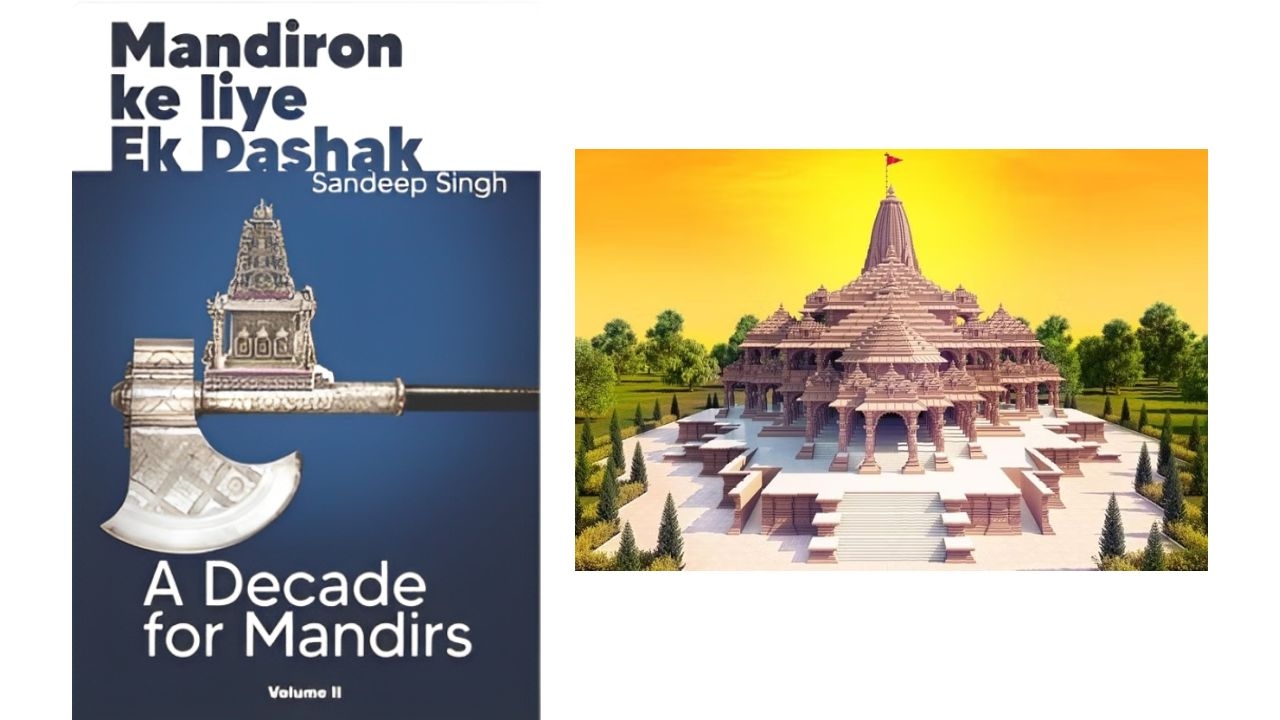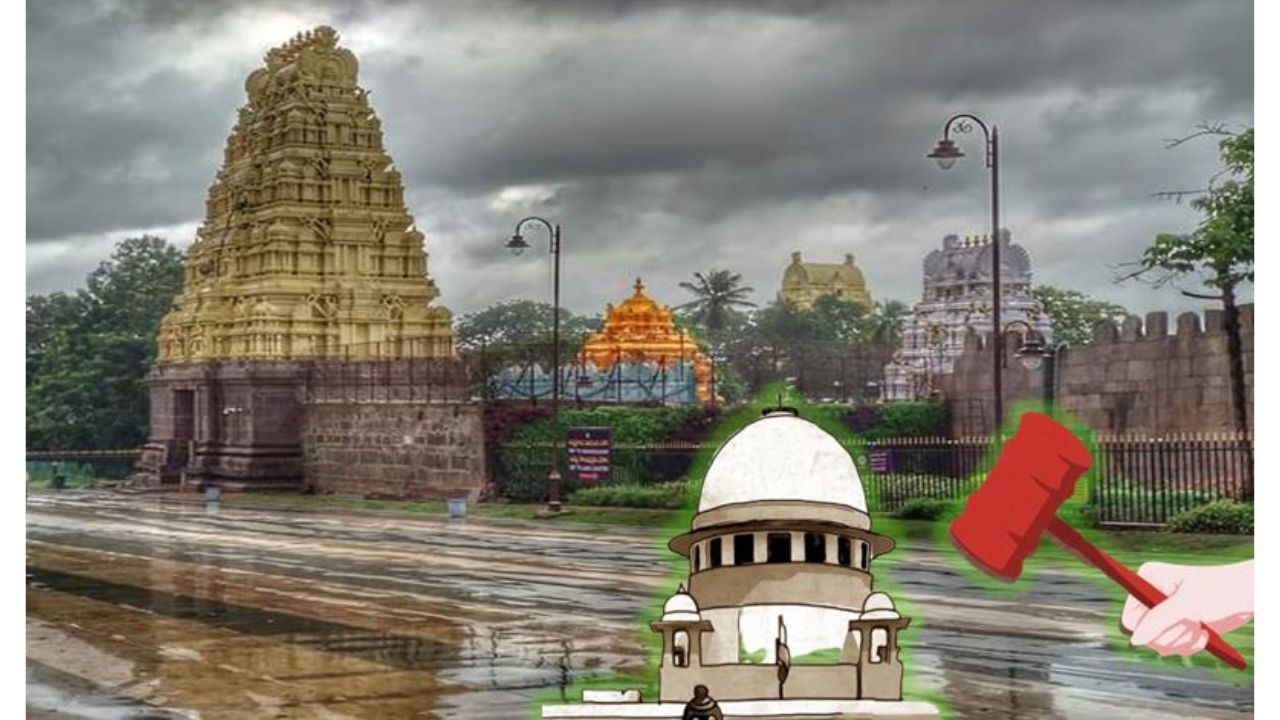A Decade for Mandirs: Sandeep Singh’s Pragmatic Strategies for Restoring Hindu Temples
31 Jul 2024 13:06:52

This book is a continuation of Temple Economics Volume I by Sandeep Singh. In the first volume, Singh detailed how Bharat is losing its mandirs. However, merely discussing the problem is insufficient to combat the obstacles in reclaiming the mandirs, especially in this secular era. Thus, the author addresses actionable solutions in this volume.
To devise durable, pragmatic, and expedient solutions, Singh boldly confronts the deep-seated 'anti-mandir bias' within the ecosystem. He revisits the critical issue of how Bharat is losing its mandirs, even in a supposedly ‘free’ era.
Singh begins with the example of the Kalighat Mandir, illustrating its suffering under imperial and colonial forces. A logical Hindu would agree with Singh’s assertion that bringing the internal affairs of mandirs to the court is a significant blunder for their future.
Singh highlights a preconceived notion regarding mandir authority:
“The practice of modernising mandirs by reducing their authority and, consequently, the wealth of Brahmins, has been ongoing since the late eighteenth century. The default assumption in Bharat today is that unless a mandir is inside a person's home or there is evidence that it was founded as a private endowment, the public—either through state bodies or as individual citizens—has the right and even the responsibility to determine what goes on at Hindu mandirs.”

Analysing the bias and colonial mindset of the Indian judiciary, Singh notes:
“Once the pujaris went to court, the judges and the Sarkari Hindus became the new pujaris. They started dictating the functioning of mandirs; not only those mandirs with disputes but all mandirs. Their interest was more in the money in the mandir than on pending cases in the courts.”
Singh urges readers to recognize that government control over Hindu temples should be a significant concern for many Hindus. Although it is a pressing issue, it has not yet sparked widespread awareness or driven meaningful reform.
To appeal to the layperson, Singh cleverly presents the issue through the lens of a foreigner, using the perspective of non-Hindu Deonnie Moodie. This approach is designed to help readers gain a better understanding of the matter.
The book is particularly useful for social sciences students, as it demonstrates how foreigners often understand and appreciate Bharat better than some Hindus do. Singh breaks down misconceptions created by colonial masters or due to the lack of study by Hindus. For example, he clarifies misunderstandings about the name 'India' and the shlok 'Vasudhaiva Kutumbakam'.

Singh delves into the detrimental constructs of Hindu society, emphasising that not reading Hindu scriptures is a significant fault line. He points out that while there is some understanding of identifying internal enemies, a failure to properly recognize and counteract these enemies and their tactics will harm Hindu society. In Part III, Singh identifies various enemies, including political Hindus, governmental Hindus, intentional enemies, and unintentional enemies, supported by recent case studies.
“In the present ideological warfare, Hindus need to be proactive rather than defensive. Singh outlines specific ways to achieve this in Part IV, emphasising the need to reclaim temples, restore deities' rights, respect pujaris, revive utsav fairs, clean mandirs, reclaim literature, reestablish mandirs as centres of socio-economic activities, and build new mandirs.”
The insights provided by Sandeep Singh in this volume of Temple Economics are not just a wake-up call but a roadmap for action for all Hindus. The author is currently working on the third volume. After exploring these eye-opening first two volumes, readers will eagerly await the next instalment.
Article by

Janhavi Naik
Younginker
Former content writer and reporter at The Narrative
Compère at Akashwani Gwalior
Research Writer at Boho Sapiens
Bachelor's in Sociology (2nd year)